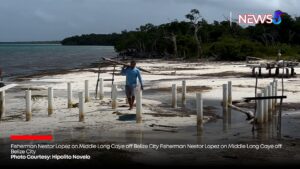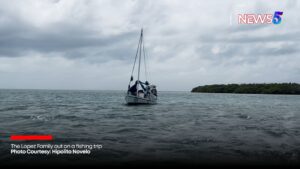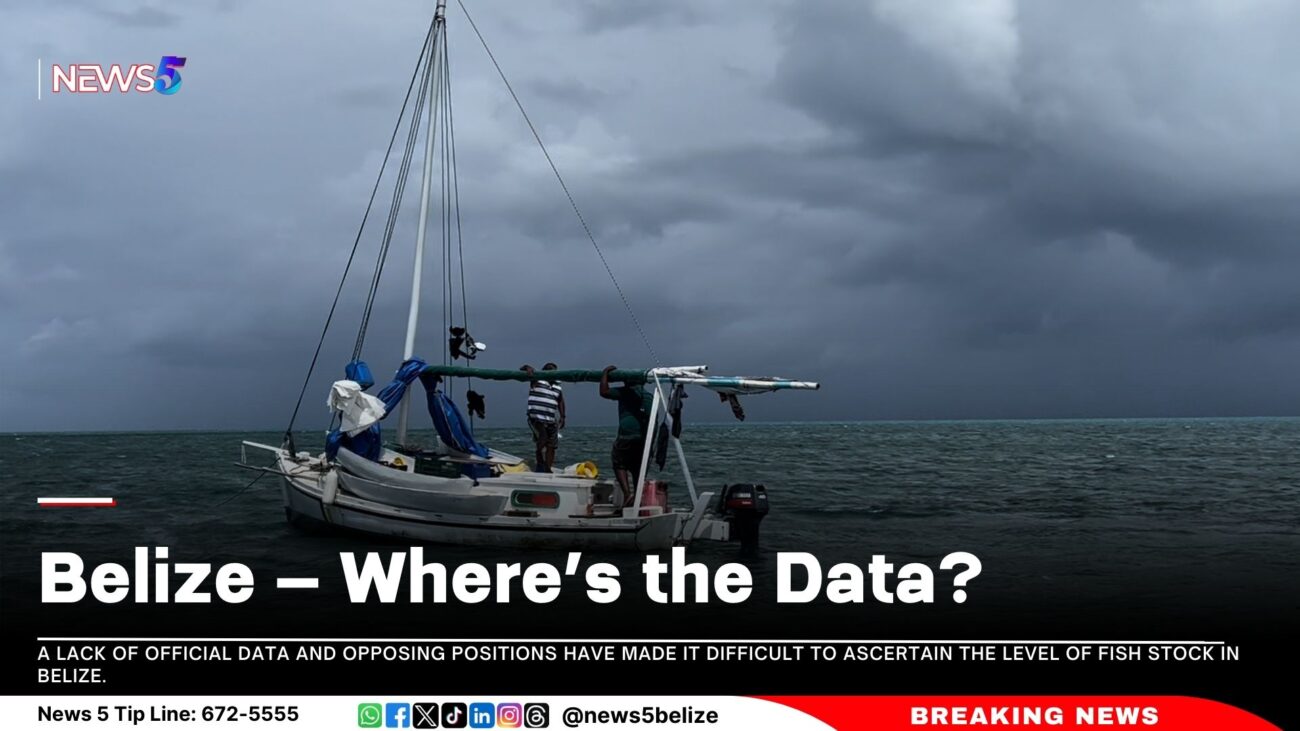Belize – Where’s the Data?
This article was originally published by the Caribbean Investigative Journalism Network (CIJN). It is part of a broader series where four other Caribbean journalists explored the issue of depleting fish stocks in their respective countries, as part of the CIJN’s investigative efforts.
By Hipolito Novelo
A lack of official data and opposing positions have made it difficult to ascertain the level of fish stock in Belize. In February, the Belize government, through the Ministry of Blue Economy and Fisheries Department, said that recent stock assessments indicate strong fish recruitment, stable populations, and consistent catches.
This, according to the government, proves that fisheries resources are sustainable. However, fishermen and non-governmental organisations such as the Belize Federation of Fishers (BFF) have raised an alarm.
The concerns raised by the BFF were highlighted during a recent workshop conducted in collaboration with scientists and local fisherfolk. These workshops revealed a significant decline in fish stocks, particularly conch, corroborating scientific findings with fisherfolk experiences.
The topics of discussion during this workshop included the overharvesting of juvenile fish and conch, hindering population recovery, adequate enforcement of fishing regulations, and illegal fishing by Guatemalan and Honduran fishers.
Nigel Martinez, Executive Director, BFF speaking of lack of fish data
The Fisheries Department said these statements were irresponsible and baseless and accused the BFF of ulterior motives. “It is evident, as expressed in their press release, that the current statements are founded on the work done by the Summit Foundation, which has not been validated nor endorsed by the Government of Belize.”
But the Department has correspondingly failed to provide reliable figures to support its claims.
Meanwhile, fishermen like Dale Fairweather, who has over 40 years of experience, are turning to deep-slope fishing as fish stocks in Belize have dramatically declined. Fairweather noticed this depletion starting about 15 years ago, and now it’s difficult to catch even a few hundred pounds of fish compared to the thousand pounds they used to catch.
Similarly, Wayne Whittaker, with over 35 years of fishing experience, has to travel further and spend more time and money at sea due to the reduced fish population. Despite the increased costs and risks, his passion keeps him fishing.
Younger fisherman, Brian Fitzgibbon, with 15 years of experience, describes fishing as a gamble, with unpredictable yields often resulting in insufficient profit. This frustration is widespread within the fishing community.
Three Belize City Fishermen share anecdotal data of declining fish stocks
A trip to Middle Long Caye, just off the coast of Belize City, led us to a fishing camp owned and operated by the Lopez family. They have been affected by declining fish stocks.
Nestor Lopez is a career fisherman and says they are now seeing fewer fish. This cripples their livelihoods. According to Lopez, fishermen, especially those operating outside protected zones, face significant challenges due to diminishing resources. This is because each time a new protected area is designated, the family’s fishing grounds shrink.

A major contributor to declining fish stocks, according to the BFF, is overfishing. In 2023, the government issued approximately 4,000 commercial fishing licenses. Executive Director of BFF, Nigel Martinez, said, “One of the assumptions was yes, due to overfishing, and we support that. We support that simply because we have seen a spike in fisherfolks.”
One of the top fisheries experts, Dr Daniel Pauly of Sea Around Us, the international organisation that assisted in recently assessing the fish stocks in Belize, says that juvenile fish are being targeted, removing the possibility of reproduction.
“Now you have a fishery that is a coastal fishery that is heavily overfished. Now, the fish that are in Belize are tiny. They are juveniles, mostly. That means there are very few parents because they don’t grow to be, to become parents. There are very few parents in deeper water that maintain that fishery for juveniles,” Dr Pauly explained.
Dr Daniel Pauly, Principal Investigator of Sea Around Us expressing disappointment at the Belize Fisheries Department
A 2021 Fisheries Audit report by OCEANA found that “fisheries information, including landings data, do not appear to be systematically collected and reported, which hinders the ability to assess fish stocks and develop effective catch control measures. There is also a substantial need to improve transparency of decision-making processes.”
According to the report, the fishing industry contributes approximately 28 million Belizean dollars ($1 Belize = .50 USD) annually to the country (Statistical Institute of Belize, 2021). Belize’s fisheries directly employ around 2,500 fishers and indirectly support over 15,000 Belizeans (UNCTAD 2020).

However, several fish stocks are showing signs of decline and overexploitation, raising concerns about environmental sustainability and the effectiveness of fisheries management in maintaining these critical stocks that many people rely on for food, culture, and livelihoods.
A 2023 report from the Belize Fisheries Project states, “It was clear that scientists’ and fishers’ perspectives on what “abundance” and “overexploited” mean may be different due to differences in scale.
Scientists assess the status of whole stocks, while fishers rely on their direct observations of the water. Both can be an accurate representation of observations and complement each other.”
The debate on whether Belize’s fish stock is declining and fisheries is in crisis can be settled with the Fisheries Department sharing the data it claims it has. But according to Dr Pauly, the department won’t because “they don’t have alternative data.”
“It is ridiculous. And you cannot pretend you have data, but be unable and unwilling to show them.”







Facebook Comments